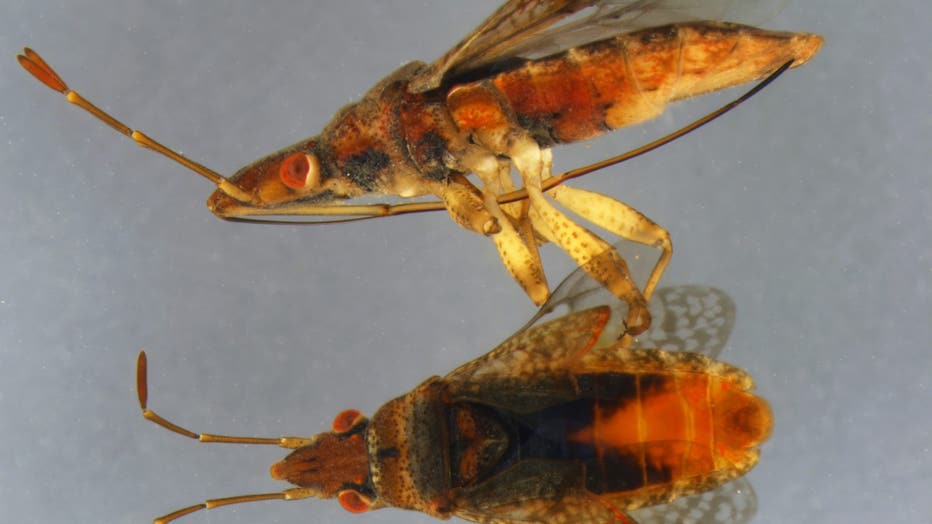Spore spreading insect intercepted at Detroit Metro Airport
Orsillus maculatus, a spore-spreading pest, was found (Photo courtesy of U.S. Customs and Border Patrol)
(FOX 2) - A foreign pest that spreads fungal spores and poses a danger to native conifer trees in Michigan and the U.S. was discovered at Detroit Metro Airport.
Customs and Border Protection officials spotted the bugs in cones from cypress trees that were arriving from Jordan in late 2024.
The backstory:
Agriculture specialists evaluating packages arriving from abroad identified a non-native insect during a search of undeclared cypress tree cones late last year.
The bugs, later confirmed as Orsillus maculatus, were observed by specialists during a routine inspection of someone traveling to Ohio from Jordan. The cones were allegedly brought in for medicinal purposes.
It's only the third time the pest has been intercepted while coming into the U.S. The previous instances were in Dallas in 1998 and Fort Lauderdale, Fla in 2018.
While the bug feeds on cypress trees, it is also known to eat conifer species, of which the U.S. has many.
"This was an excellent discovery by our CBP agriculture specialists," said port director Fadia Pastilong. "We must be cognizant of all threats in the border environment, large and small."

The spore spreading insect has only been intercepted entering the U.S. twice before. (Photo courtesy of U.S. Customs and Border Patrol)
Dig deeper:
Both cypress and conifer tree species are found around the U.S. and provide a variety of benefits to the surrounding land.
They reduce erosion, boost water quality, and provide valuable wildlife habitat. The trees also make up a segment of the country's timber industry.
In Europe, Orsillus maculatus has caused significant damage to cypress plantations.
The bug also carries fungal spores on their bodies, which spread as they move around.
The Source: Information from the U.S. Customs and Border Patrol was used for this story

